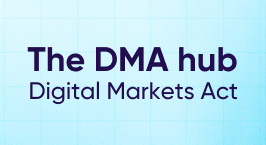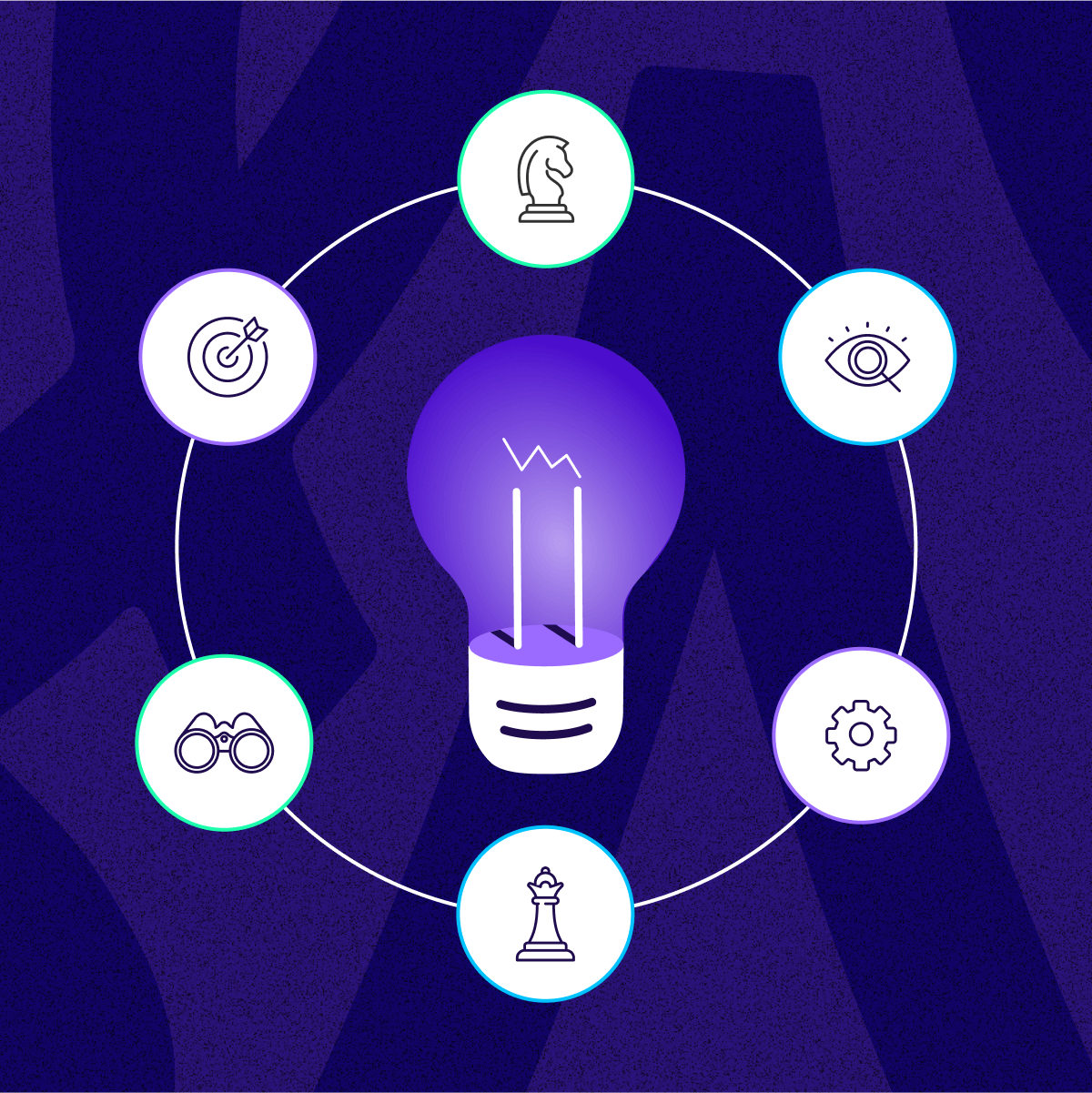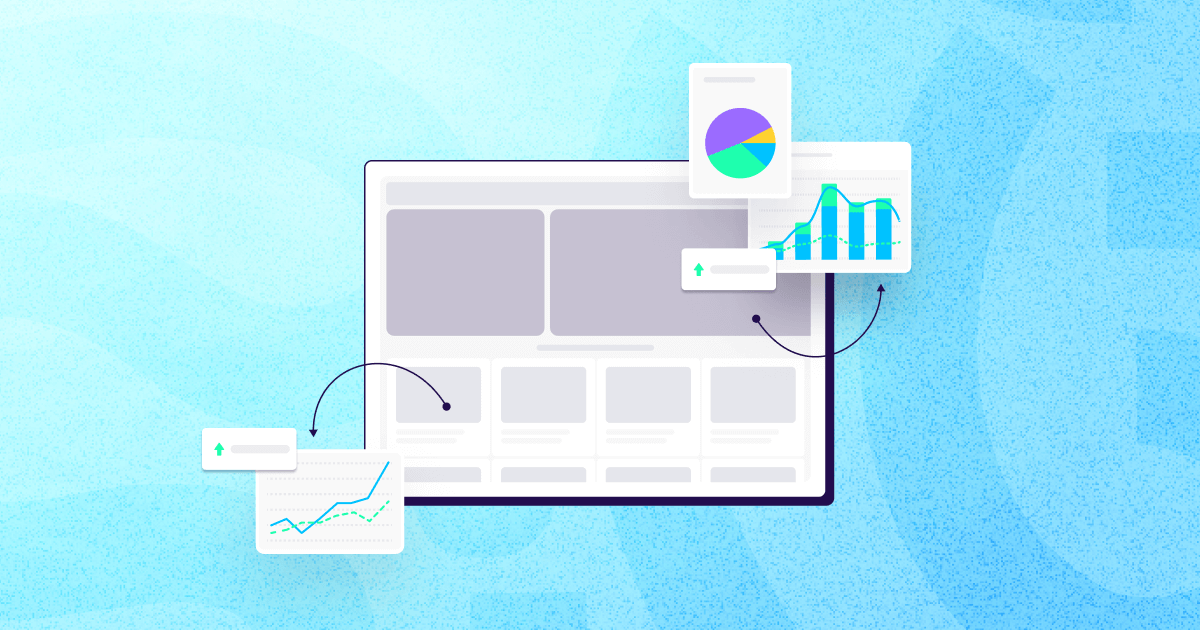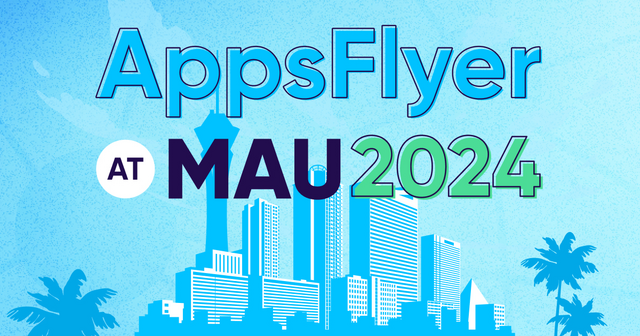
How Nigerian companies can grow on mobile
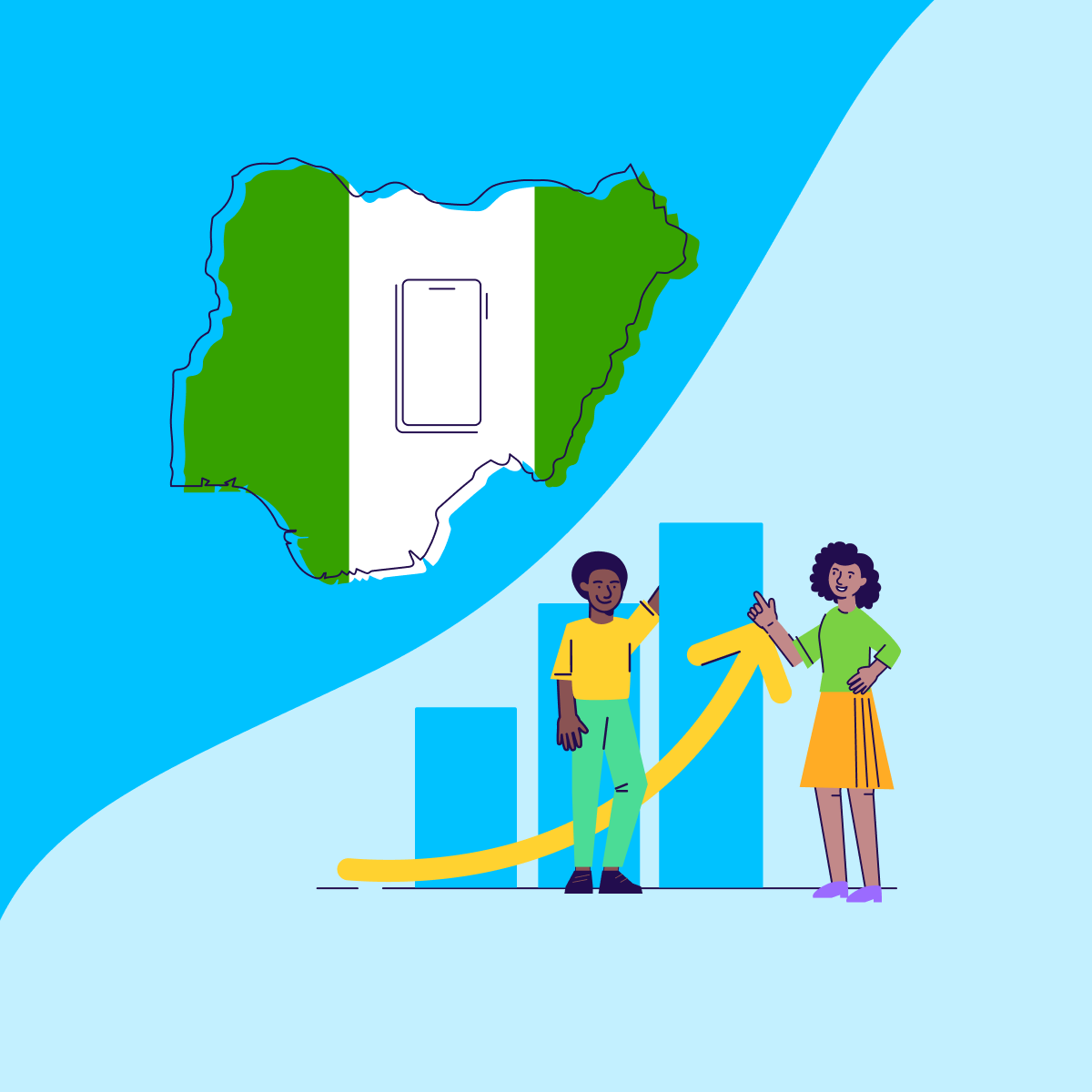
It’s impossible to talk about the African mobile landscape without mentioning Nigeria, the continent’s most populous nation.
The country is currently undergoing a digital revolution, led by a very young population with an average age of 18.1 years. According to the theory on Diffusion of Innovation, Nigeria is still in the early stage of smartphone adoption.
However, by 2025, smartphone penetration is expected to eclipse 60%, thereby moving the country into a more mature stage. As more smartphones fill the market, more mobile apps will be in distribution.
According to AppsFlyer’s data, the number of app downloads has jumped 125% in the last two years. Between Q1 2020 and Q1 2021, they’ve seen an increase of nearly 45%.
I believe this forecasted growth represents a huge opportunity for mobile app marketers to acquire new users and deepen the existing footprint of their apps.
So, here’s my advice for companies looking to take advantage of the digital revolution in Nigeria and scale on mobile.
Think long-term
This should be the foundation for any marketing strategy, but it’s especially important in Nigeria. The consequences of the country’s teenager-dominated population is a lack of immediate buying power. However, as the young population ages, upward economic mobility increases due to skill acquisition and growing professional experience.
So, companies must approach customer acquisition with the long-term view to provide value for their “future customers”.
What does this long-term view look like? In my opinion, the top acquisition strategies for Nigerian marketers are a mixture of organic, influencer marketing, giveaways and paid advertising. Let’s explore this in more detail.
Organic marketing
The definition of organic marketing can seem both elusive and intuitive. It refers to anything you do to attract customers over time while not having to pay directly for a boost. So, it includes efforts like writing blog posts, case studies, tweeting or posting Facebook updates, and getting user-generated content like reviews. For early-stage start-ups with limited budgets, this is a great way to use your own channels to increase brand awareness.
Providing helpful content to potential users is a great way to help them discover your product or what you are advising.
One global company famous for its organic marketing is Hubspot—whose blog attracts 6 million visitors every month (it was 5 million in 2018).
In Nigeria, Risevest, a fast-growing wealth-tech startup, runs a blog dedicated to providing stock market news and investment tips.
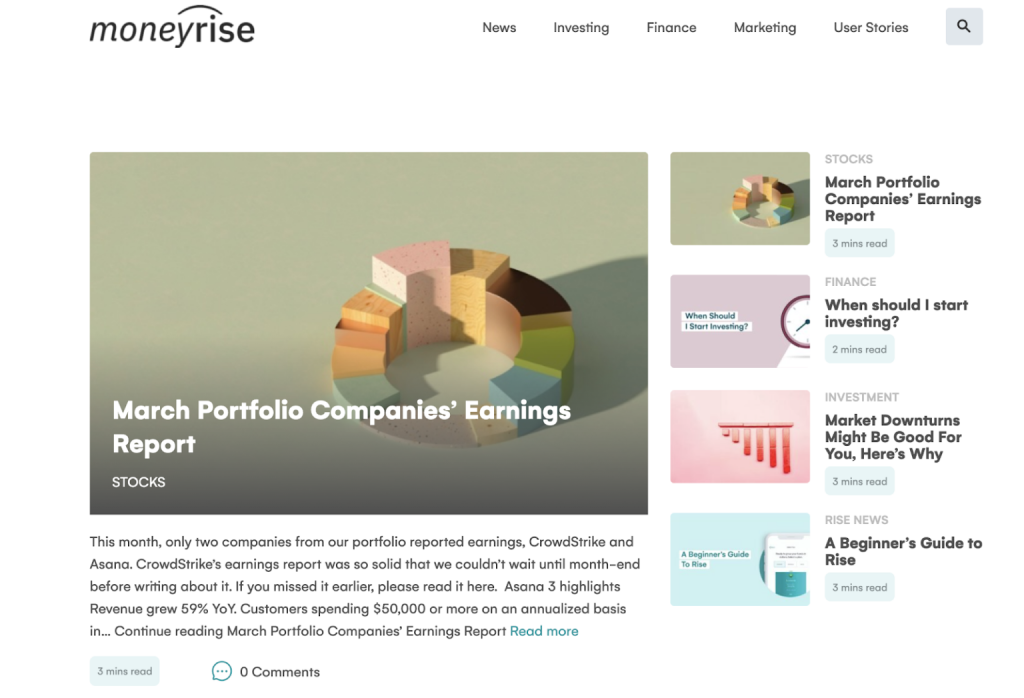
There are also proven methods to leverage user reviews to drive social proof. According to one growth marketer, strategically positioning the “rating pop-up” after successful completion of certain in-app actions has increased both the quantity and quality of reviews his organization received on Playstore.
Similarly, in-playstore optimizations are also crucial for driving downloads. According to a product marketer at one of the country’s leading Fintech companies, they test new copies to see if they’d rank for specific keywords. He said,
“We run experiments with our copy on Google PlayStore because Apple doesn’t let you change copy unless you are pushing an update. Once we notice a favorable response to the copy, we push it with the next app update.”
Influencer marketing
Many Nigerian startups and businesses are leveraging the power of influencer marketing to push their app awareness and adoption.
For example, V by VFD, a popular Nigerian digital bank, partnered with legendary musician and producer Don Jazzy to market their mobile application. Branding the app around a familiar name helped them generate a lot of initial traction, that is, gain acquisition. The android app has over 100,000 installs.
Kuda, another leading digital bank, signed on ex-Big Brother Nigeria (BBN) housemate and mega-influencer, Erica Nlewedim as a Brand Ambassador. The Kuda Microfinance Bank android app has over 1 million installs.
Similarly, BitSika, a Ghanaian crypto fintech with significant users in Nigeria, turned heads when it partnered with Davido, one of the continent’s biggest celebrities and most followed Nigerian on Twitter. According to Atsu Davoh, CEO of BitSika, the announcement day alone brought over 20,000 new users to their mobile app. The app currently has over 50,000 installs on Google Playstore.
Giveaways
This is a rather simple contest marketing strategy in use by many brands in Nigeria.
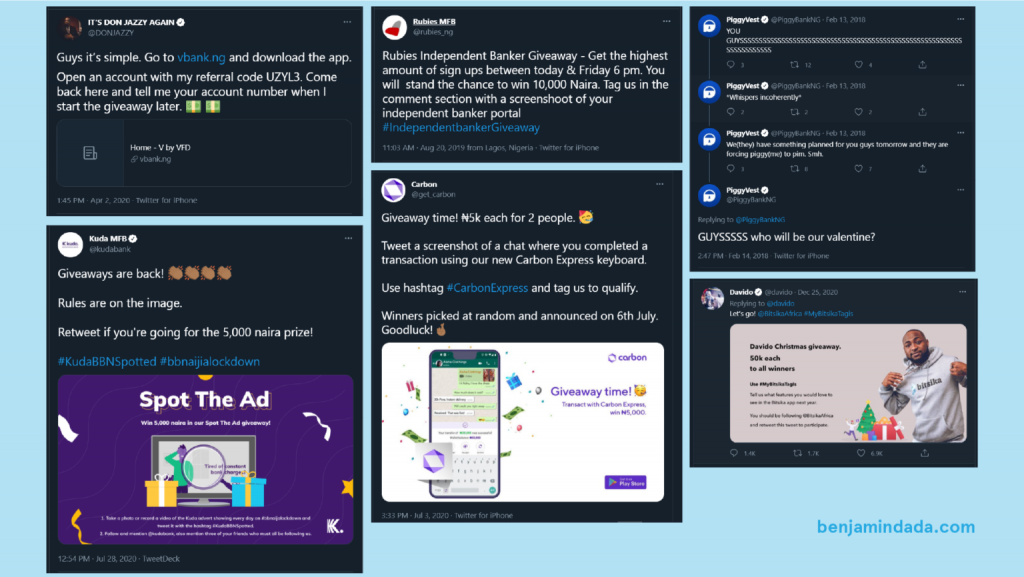
A typical giveaway involves getting people to post their in-app username, cashtag, or account number to qualify for a win. Those conditions would require a giveaway participant to sign-up or create an account on the platform.
Local digital banks and other consumer fintech platforms, such as Carbon, Rubies and PiggyVest have employed giveaways to drive consumer activity repeatedly.
On the surface, it has appeared successful in getting users to download an app but there is still a lot of skepticism around retention and added customer value. If companies are going to focus on give-aways it’s important these are carried out alongside other activities in order to keep users on your app.
Paid advertising
While many companies are already taking advantage of organic marketing, influencer marketing and giveaways, there is still a lot of room for growth in paid advertising for Nigerian startups. AppsFlyer data below shows that non-organic installs have increased by almost 80% since Q2 2020, indicating that it’s fast becoming an important marketing strategy for brands.
According to Bukayo Ewuoso, Key Account Manager West & Central Africa, Eskimi DSP, ad budgets for startups can range anywhere from ₦50,000 (~$125) to ₦750,000 (~$1870) per week, depending on the size of the company and its marketing goals. AppsFlyer data shows that the average CPI in Nigeria is about $0.35.
Statista predicts that the country’s digital advertising market will hit $270 million in 2021. That number is a far cry from South Africa’s predicted size of $862 million.
Google and Facebook are still the most popular platforms for startups running mobile download ads. One growth marketer remarked that they found that Facebook ads were more efficient for consumer-tech while Google ads fared better at converting for B2B SaaS products.
Campaign measurement in Nigeria
Mobile marketing in Nigeria is still relatively nascent, and one largely unexplored aspect is attribution and measurement. This allows marketers and app developers to understand where their installs are coming from, what content is resonating with specific user groups, and where they should be investing more of their marketing efforts.
With my blog, one challenge I have with measuring our attribution is figuring out the many touchpoints a visitor encountered before eventually taking action (like visiting the site or reading a story).
For mobile apps, that customer journey, from first encountering your app to downloading and becoming a valuable user is even more complicated, which is why marketing attribution software is so important as it provides a clear view from start to finish. For example, marketers can see whether users click through to the website but don’t download the app. Or if they install it but either don’t use it or quickly uninstall it.
Bukayo also notes many startups would benefit from measuring installs and other in-app activities. This data analytics can then be used to optimize marketing campaigns both for user acquisition and remarketing.
One of our marketing sources noted a knowledge gap when it comes to setting up mobile attribution. “A lot of people only know how to run ads; they can’t do attribution and measurement,” he said. I believe that as marketers come to understand the benefits of attribution, and are supported by the right technology, this will change.
There is significant room for growth in advertising for Nigeria startups, especially paid advertising. As startups channel more resources into their marketing campaigns, being able to measure the impact of their campaigns and optimize them will be essential.
Key takeaways
- Understand your audience. Nigeria’s young demographic will impact how you market your app.
- Measure. No matter your budget it’s important to understand the ROI of your marketing campaigns to see what’s driving success and where you should invest more.
- Get ahead. Mobile app downloads are only going to increase in Nigeria, and as a result, mobile marketing will become more important to help your app stand out from the crowd.
